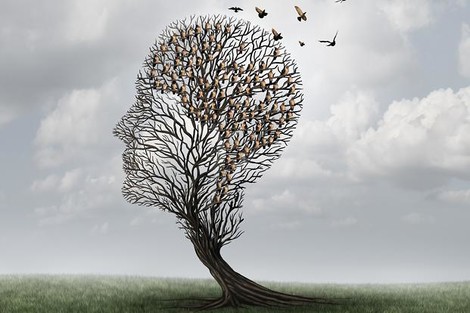Your podcast discovery platform
Curious minds select the most fascinating podcasts from around the world. Discover hand-piqd audio recommendations on your favorite topics.

piqer for: Global finds Health and Sanity Doing Good
Bangalore-based Rashmi Vasudeva's journalism has appeared in many Indian and international publications over the past decade. A features writer with over nine years of experience heading a health and fitness supplement in a mainstream Indian newspaper, her niche areas include health, wellness, fitness, food, nutrition and Indian classical Arts.
Her articles have appeared in various publications including Mint-Wall Street Journal, The Hindu, Deccan Herald (mainstream South Indian newspaper), Smart Life (Health magazine from the Malayala Manorama Group of publications), YourStory (India's media technology platform for entrepreneurs), Avantika (a noir arts and theatre magazine), ZDF (a German public broadcasting company) and others.
In 2006, she was awarded the British Print-Chevening scholarship to pursue a short-term course in new-age journalism at the University of Westminster, U.K. With a double Masters in Globalisation and Media Studies from Aarhus Universitet (Denmark), University of Amsterdam and Swansea University in Wales, U.K., she has also dabbled in academics, travel writing and socio-cultural studies. Mother to a frisky toddler, she hums 'wheels on the bus' while working and keeps a beady eye on the aforementioned toddler's antics.
Food For Thought: Why Don't We Know More About Brain Nutrition?
Last week, there was a bit of storm-in-a-teacup situation about canola oil. A study conducted on mice suggested it had a negative effect on brain health. This was projected as quite the blow to canola oil’s reputation as a heart-healthy, inexpensive alternative. Most media reported the study; some extravagantly while the more sober ones warned that this was an experiment conducted on mice and thus might not translate in the same way in humans. Very few articles examined the deeper questions this kind of study invariably throws up.
This article does.
Right at the outset, the author asks the vital question the canola study raises: “When it comes to healthy eating, do we have to choose between the head and the heart?” If you try to find the answer to this question, it will dawn on you that most nutrition research is focused on heart specifically and cardiovascular health generally. There isn't a great deal of information out there on nutrition for our brains.
Which, if you think about it, is extraordinary, considering how the brain not only uses up 25 per cent of the energy we consume but also is really the fountainhead of all things life. Brain-related diseases are growing, and the number of people suffering from diseases like Alzheimer’s and dementia worldwide are increasing exponentially. And yet, as the author rightly rues, not many are specializing in studying the effects of diet on the brain. She speaks to biochemist Joseph Hibbeln, one of the few researchers focusing on brain nutrition, who explains how the curious 'competition' between Omega-3 and Omega-6 fatty acids within our bodies might be causing an imbalance between our brain and heart health. As the author puts it, the present body of studies (mostly conducted on animals) has only resulted in more controversy and a kind of 'scientific disarray'.
The answer to this confusion? More research, of course.
